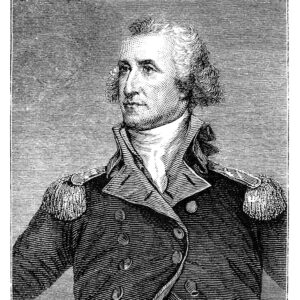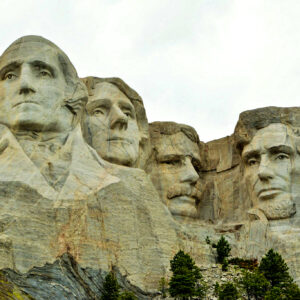Honoring George Washington, the Good and the Bad, on President’s Day

On February 20, America will recognize George Washington’s Birthday. No matter how many calendar makers, newspapers and politicians refer to it, there never has been a federal law creating a holiday called “Presidents Day.” And the lack of a federal Presidents Day is a good thing. While Washington deserves special reverence, as does the office he holds, having a day to honor all presidents would dishonor both Washington and the presidency itself.
Let’s start with Washington. In the words of biographer James Thomas Flexner, he was the “indispensable man” of the American founding. He kept the Continental army together even as it lost major battles, won the Revolutionary War with help from the French, presided over the Constitutional Convention, and served two terms (by unanimous vote of the Electoral College) as the nation’s first president. He further strengthened democracy by stepping down after those two terms when he could have remained in power indefinitely.
He was, of course, human. He was sometimes a poor military tactician and often cold and aloof in person. He was also an enslaver who owned more than 100 other human beings. Although he freed them on his death, participating in such a system remains a moral stain.
While a few other presidents — Abraham Lincoln, in particular — arguably saved the country, Washington was the person who created it. So, if Americans want to celebrate their country, they should also celebrate Washington.
But this is different from celebrating all presidents. Many presidents with important, meritorious achievements made enormous errors in judgment and morals. Woodrow Wilson, for example, ushered in prosperity through free trade, helped open the vote to all women and led the nation to military victory in the first World War while simultaneously catering to the worst of American racial prejudice at every turn.
Thomas Jefferson doubled America’s territory through the Louisiana Purchase and caused an economic depression through a disastrous trade embargo.
Likewise, some seemingly unaccomplished presidents did good things. Warren Harding, for example, presided over a corrupt administration and accomplished little during his two years in office, but showed real courage in advocating for civil rights for Black Americans in the Jim Crow South. Andrew Johnson, a dissolute drunk and terrible political leader who attempted to undermine reconstruction after the Civil War, brought Alaska into the United States in one of the greatest land deals in history.
And a few presidents were simply losers. James Buchanan did nothing to stop a slide into civil war. John Tyler refused to cooperate with anyone while in office and, after his presidency, worked hard to stoke the fires of secession by winning elected office in the confederate government. And, of course, when it comes to recent presidents — Donald Trump, in particular — opinions will remain exceptionally divided for some time to come.
Given the mixed achievements of the men who have held America’s top office, nobody should honor all of them. The office Washington originated, however, deserves esteem as a symbol of the country. While vociferous opponents of any president’s policies have an important place in a democracy, this should not extend to attacks on the office itself.
Washington was largely successful in his promise to “raise a standard to which the wise and honest can repair” and then stepping away from power when he could have held it for longer. His actions established a presidency worthy of reverence. While we shouldn’t have to honor every president, it is still possible to honor Washington’s achievements, recognize his human failings and celebrate the presidency.
Please follow DVJournal on social media: Twitter@DVJournal or Facebook.com/DelawareValleyJournal




